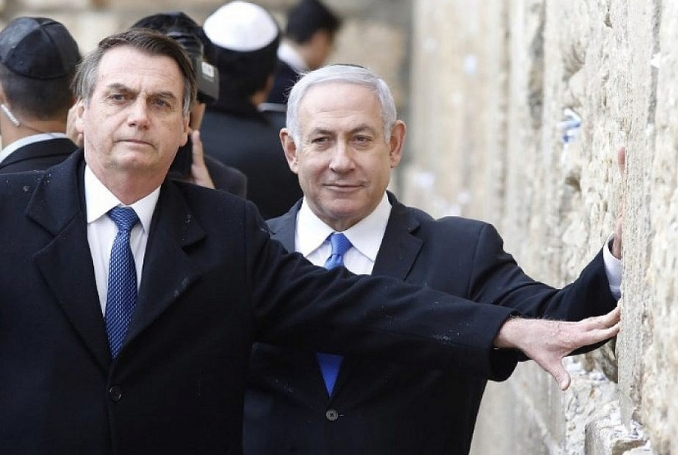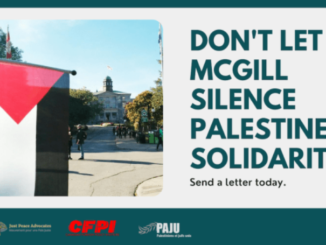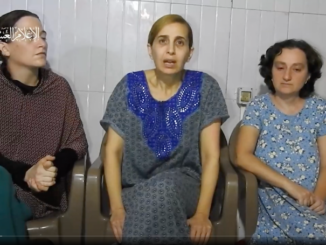
By Benay Blend
While Indigenous inhabitants in the Amazon Rainforest are struggling to survive in the wake of intentionally produced fires, progressives are focusing on celebrity- manufactured solutions along with advice from Non-Governmental Agencies (NGOs)—all telling us to boycott meat, practice green consumerism and /or contribute money to various movements. In other words, do anything but listen to the tribes who are in the front line of fire. This is not to minimize the achievements of movements such as Boycott, Divestment Sanctions (BDS) which works to end Israeli oppression of Palestinians as well as force Israel to adhere to international law.
What distinguishes BDS from groups like the Rainforest Alliance is that the former represents many sectors of Palestinian civil society while this particular non-profit defines itself as “an alliance of companies, farmers, foresters, communities, and consumers committed to creating a world where people and nature thrive in harmony.” Operating at the junction of business, agriculture, and forests, it hopes to make “responsible business the new normal.” In other words, as opposed to BDS, which recognizes that there is no “normal” under the Occupation, the Rainforest Alliance believes that ethical capitalism (itself perhaps an oxymoron) provides solutions to world problems.
Canadian author and activist Naomi Klein, writing in the Boston Globe on August 26, 2019, believes that centering Indigenous peoples who are fighting for their rights is key to resolving the global climate crisis. “Colonialism is setting the world on fire,” Klein warns. “Taking leadership from the people who have been resisting its violence for centuries, while protecting non-extractive ways of life, is our best hope of putting out the flames.”
The fires raging in the Amazon are caused by many factors. Profits from beef, soy, and lumber, which quite rightly have been the focus, are only the tip of the underlying problem. Perhaps more difficult to resolve, given the capitalist framework of many NGOs, is what Klein labels the “colonial mindset,” a framework that ties Jair Bolsonaro to Donald Trump to Netanyahu and so on, in the ever-expanding web.
Indeed, as early as January 2019, Ramzy Baroud predicted that Bolsonaro would follow in Netanyahu’s footsteps. Just as the Israeli leader has sought to ethnically cleanse the landscape of Palestinians, so Bolsonaro has become the “arch-enemy” of Indigenous and impoverished people in Brazil. By no means unique to Brazil, this mentality encourages ongoing efforts by corporations in other parts of the Americas to profit from resources extracted from stolen land. As Klein notes in her analysis, Bolsonaro previewed his intentions two decades ago when he pronounced:
“It’s a shame that the Brazilian cavalry has been as efficient as the Americans, who exterminated the Indians.”
Though repeating an outmoded myth of the vanishing Indian, Bolsonaro correctly linked his objectives to a familiar trope, that of “manifest destiny,” a mindset that drove 19th-century settler-colonialists in the American West to grab Native land under the guise of divine entitlement. It is a similar outlook, notes Puerto Rican activist Deborah Santana, that guides “the Zionist destruction of age-old olive groves and diversion of scarce water sources in Palestine.” In all of these regions, colonizers have sought to ethnically cleanse the existing population in order to exploit natural resources for corporate profit.
Linking climate change to the violation of Indigenous rights has several advantages. For example, it encourages Zionists who are working with ecological groups to acknowledge the role that settler-colonial societies, especially Israel, have played in displacing their Indigenous populations. As Ramona Wadi writes, Israel’s expansion, too, has been dependent upon ethnic cleansing. She writes:
“Continuing on what the Jewish National Fund achieved in terms of Palestinian dispossession since before the 1948 Nakba, Israel’s expansion and targeting of Palestinian infrastructure has wrought environmental damage to the detriment of Palestinians. Yet this destruction has not prevented Israel from branding itself, also with the help of the UN, as capable of assisting African countries whose land has been over-exploited.”
Neither Brazil nor its Israeli counterpart, charges Wadi, have been held accountable for the damages both have inflicted on Indigenous inhabitants as each government encroaches on their land. Aside from their alleged “environmental preoccupations,” she concludes, both leaders are carrying on without much obstruction in their missions of “wiping out the indigenous communities who claim the land.” Moreover, claims Majerle Lister, a member of the Red Nation, on Turtle Island,
“Conservation plays a dual role, it keeps land away from Indigenous control while conserving land for the settler public. Narratives like this usually flow from one person to another without evaluating the reality from which it was created, all the while ignoring the historical dispossession of Indigenous lands.”
Adopting a framework that centers settler-colonial practices provides a means to critique these agendas wherever they exist. It drops the mask that Israel is providing humanitarian aid to other countries by exposing its ties to ethnic cleansing both at home and in those very regions that it is seeking to assist. Moreover, globalization of the environmental movement centers respect for Indigenous rights, a stance than encourages the preservation of lives as well as land. Indigenous leaders across the Amazon have called the fires a “plague” that sickens their children and destroys the flora and fauna of their land.
Indigenous leader Sonia Guajajara declared:
“We’re putting our bodies and our lives on the line to try to save our territories…We’ve been warning for decades about the violations suffered across Brazil.”
Colonialism—in the Americas, in Palestine, and elsewhere around the world—bears a large part of the responsibility for the fires. By listening to people who have been under its thumb for centuries, concludes Naomi Klein, we might be putting forth “our best hope for putting out the flames.”
– Benay Blend received her doctorate in American Studies from the University of New Mexico. Her scholarly works include Douglas Vakoch and Sam Mickey, Eds. (2017), “’Neither Homeland Nor Exile are Words’: ‘Situated Knowledge’ in the Works of Palestinian and Native American Writers”. She contributed this article to The Palestine Chronicle.

– Benay Blend earned her doctorate in American Studies from the University of New Mexico. Her scholarly works include Douglas Vakoch and Sam Mickey, Eds. (2017), “’Neither Homeland Nor Exile are Words’: ‘Situated Knowledge’ in the Works of Palestinian and Native American Writers”. She contributed this article to The Palestine Chronicle.







